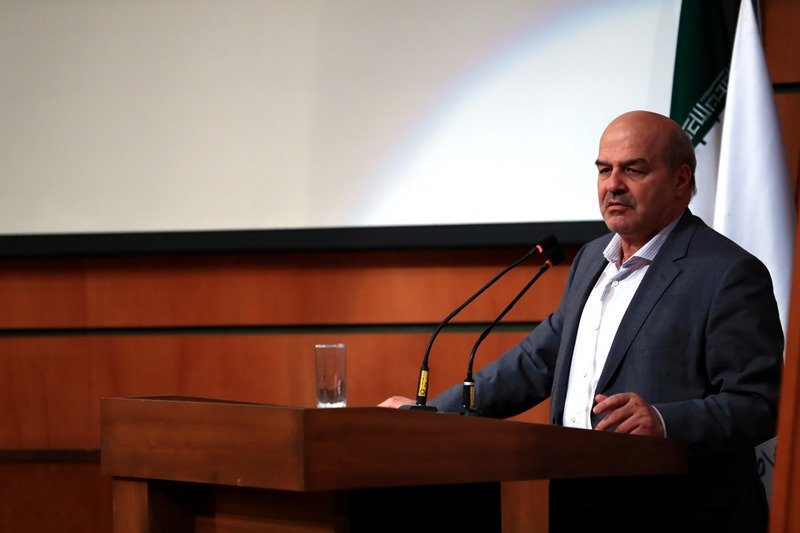Water shortage “serious”, says environment chief

TEHRAN – The country is facing a serious water shortage, said Isa Kalantari, the chief of the Department of Environment.
Water should be at the center of all the national programs and plans, he said, adding that industrial and agricultural development should comply with the national Environmental Impact Assessment (EIA) law, Mehr reported on Wednesday.
No extra pressure should be imposed on water resources and accordingly no new license will be granted for high water consuming industries in Iran’s arid and semi-arid areas, he said.
No one opposes the country’s development and support for domestic production, but “domestic production should not be supported at any cost,” he added.
Iranian officials are repeatedly warning about water shortage in the country by using terms such as ‘water shortage’ or ‘water bankruptcy’ and the like to raise public awareness towards this extremely serious issue.
The mean precipitation of the country has dropped significantly compared to long-term average. The data shows that Iran has experienced a 56-percent decrease in average precipitation over the period from September 23-December 25, 2017 compared to the same period in the long run.
While climate change is one of the main culprits of decrease in average rainfall the recurrent drought spell and water shortage in the country are mostly blamed on mismanagement and shortsighted water management policies as well as unsustainable agricultural practices.
Sustainable development, main strategy
Referring to sustainable development as the main strategy of the Department of Environment (DOE), he emphasized the department will only cooperate with organizations which move in this direction.
He further criticized the overly bureaucratic structure of the DOE through which different projects were granted their environmental assessment license previously.
The license is needed for making sure that projects don’t do any harm to the environment and civil projects cannot be launched without it.
Although the process had been hardened, there were no surveillance or control over projects after granting the license and they could become detrimental for the environment, he added.
According to the Sixth Five-Year Development Plan (2016-2021), the Department of Environment has only a two-month deadline to assess the civil and developmental projects and if expired, projects can be launched without any need for environmental licenses, he highlighted.
Poverty vs. environment
Poverty and unemployment will lead to the destruction of the environment, Kalantari highlighted, adding that environment should not be a barrier to the development of the country.
Of course this development should be in the sustainable route, he emphasized.
According to United Nations Economic and Social Commission for Asia and Pacific (ESCAP), poverty and environment are closely interrelated. Whilst people living in poverty are seldom the principal creators of environmental damage, they often bear the brunt of environmental damage and are often caught in a downward spiral, whereby the poor are forced to deplete resources to survive, and this degradation of the environment further impoverishes people. When this self-reinforcing downward spiral becomes extreme, people are forced to move in increasing numbers to marginal and ecologically fragile lands or to cities.
Need for more research
As far as research and scientific activities are concerned, the department is poor, he regretted.
Kalantari called on research institutes and universities to carry out practical researches on different aspects of environment, especially the effects of sand and dust storms on economy and health sector.
Limited budget, a great challenge
The department is also poor regarding the allocated budget, he regretted, adding that the budget of DOE doesn’t fit its wide range of responsibilities and this is has led to a growing concern for the new [Iranian calendar] year (starting on March 21).
In spite of all challenges like budget limitations, the Department of Environment will “stand firm” wherever the country’s environment is threatened, he highlighted.
NGOs are auxiliary arms
Kalantari referred to NGOs as the “auxiliary arms” of the organization. However, principles and strategies of the country’s environment should be defined by scientists and experts and NGOs pressures should not lead to laying down these principles.
Elsewhere in his remarks Kalantari noted that President Hassan Rouhani has enlisted 4 priorities for the country’s environment; waste management, combating sand and dust storms, restoration of wetlands and improvement of air quality.
Current conditions have made the wetlands’ restoration programs so hard, but “We will do our best to preserve the environment and follow the president's priorities” he concluded.
MAH/MQ/MG
Leave a Comment